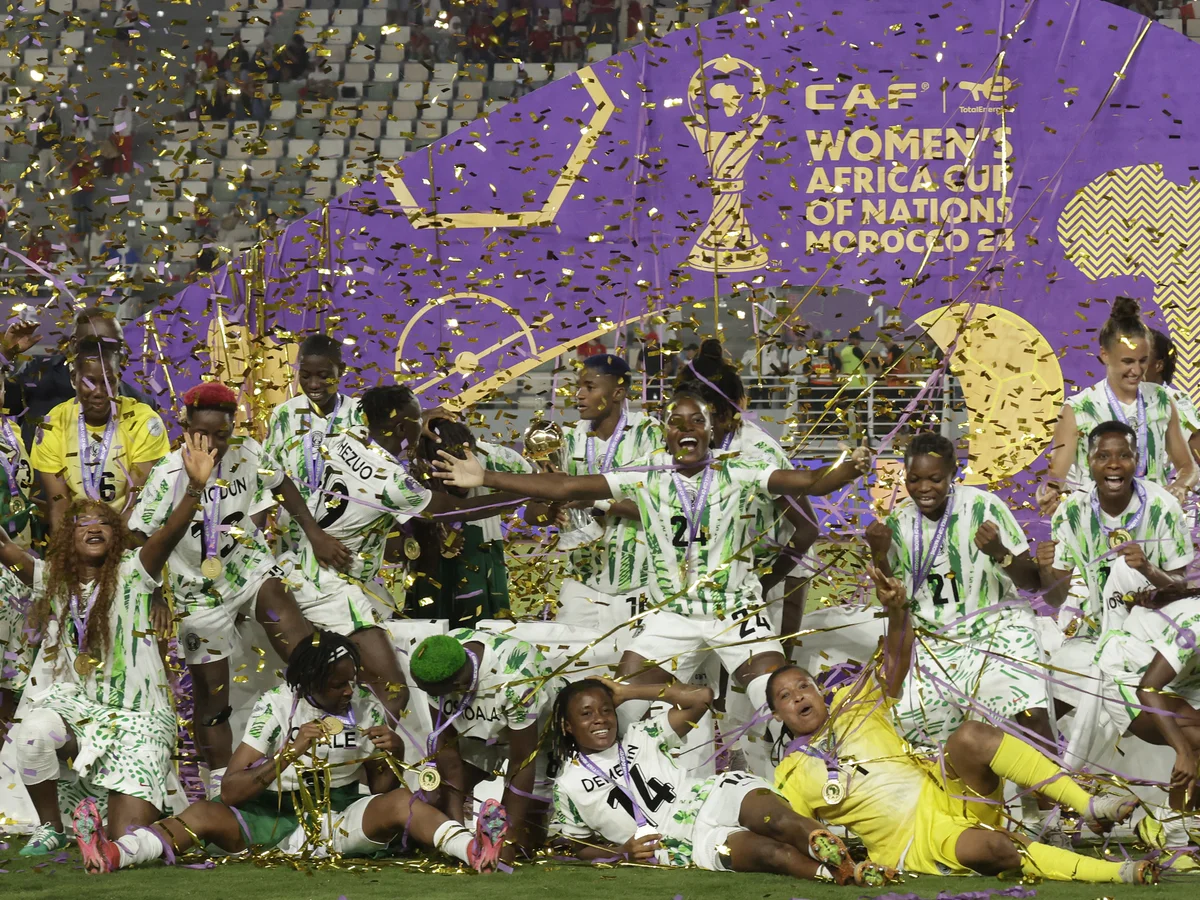
Nigeria has once again stamped its authority on African women’s football by winning the 2025 Africa Women’s Cup of Nations, securing a record-breaking tenth continental crown.
The pulsating final, held in Rabat, Morocco, was a showcase of determination, skill, and resilience that captured the growing passion for women’s football across the continent.
The match unfolded before a fervent home crowd, with Morocco taking an early lead through two goals in the first half. Despite facing a daunting deficit, the Nigerian Super Falcons displayed extraordinary grit.
They fought back steadily in the second half, igniting hope with a penalty that narrowed the gap, followed by an expertly crafted equalizer.
The decisive moment came in the dying minutes when a sublime free kick sealed Nigeria’s victory.
This landmark triumph cements Nigeria’s unrivaled dominance in African women’s football, even as the tournament witnessed intensifying competition, notably from host nation Morocco, making their first-ever finals appearance.
The 2025 edition carried added significance, featuring a brand-new trophy introduced by the Confederation of African Football (CAF) alongside a doubled prize fund of $1 million for the champions. These enhancements underline a broader commitment to elevating women’s football across Africa.
The tournament also spotlighted the influence of international coaching expertise. Morocco’s squad was led by Jorge Vilda, exemplifying a shift towards global standards, while Nigeria’s coach Justine Madugu relied on a blend of tactical discipline and seasoned leadership to steer the Super Falcons to glory.
Nigeria’s victory highlights the enduring value of experience and teamwork in continental football, even as emerging teams challenge the traditional hierarchy. Morocco’s breakthrough signals a changing landscape, hinting at a more competitive future for African women’s football.
With packed stadiums and millions tuning in continent-wide, the 2025 final stands as a milestone moment, boosting visibility and inspiring renewed investment in women’s sport development policies.
While Nigeria’s Super Falcons continue to shape the history of African women’s football, the energy and progress shown by rising nations promise an increasingly vibrant and inclusive competition in years to come.



